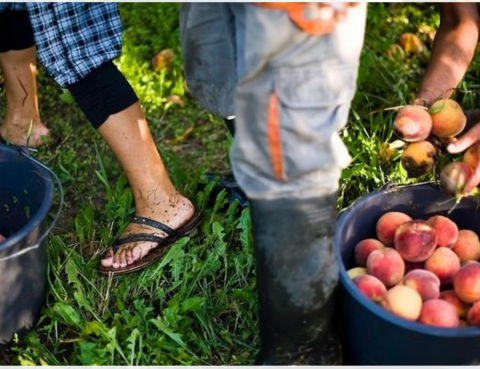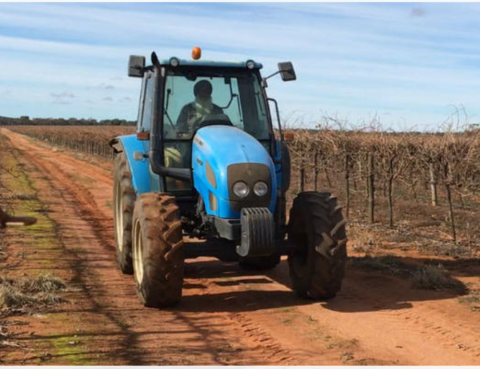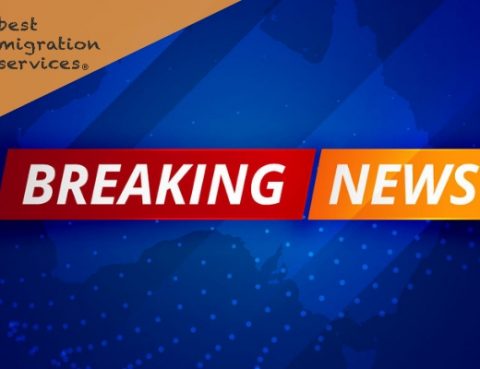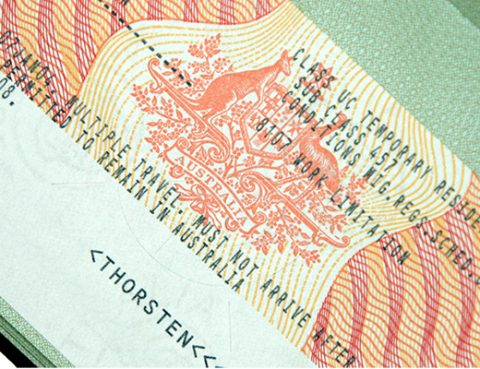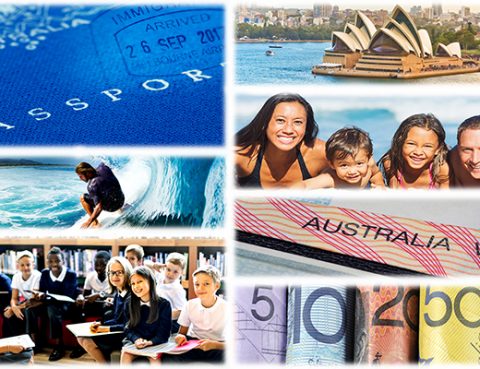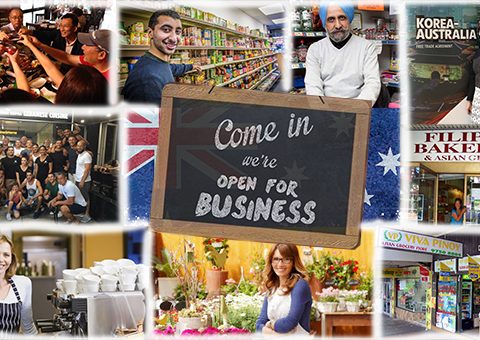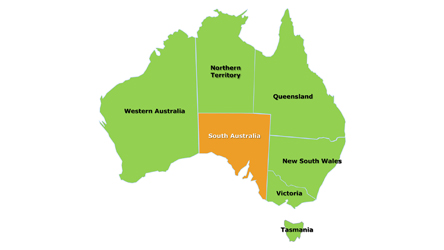Minimum wages in Australia –
Information for our Clients from Dubai, Abu Dhabi – United Arab Emirates and India who would be interested in Migrating to Australia.
An employee’s base rate of pay for ordinary hours worked is defined as a minimum wage. It is generally dependent on the industry and the type of work you normally do and also that applies to their employment. An Employer and/or employee is not paid less than their applicable minimum wage, even if they agree to it. The Fair Work Commission’s (FWC) committee reviews and defines the minimum wages that has to be received by employees in their workplace as per their job hours and type of employment. This is minimum wages is defined by FWC every year. FWC considers this minimum wages for employees through written submissions from employers, companies and individuals. Then FWC consults their Expert Panels who in turn do their own research before producing it to employers and individuals. This minimum wage act defines the minimum wage for all employers and agreement-free employees like but not limited to trainees, apprentices and junior employees, employees with a disability. This minimum wages apply from the first full pay period on or after 1 July each year.
The current national minimum wage is currently $18.93 per hour or $719.20 per 38 hour week (before tax). Casual employees are also covered by the national minimum wage. Most of the employees in the workplace system are covered by a modern award. These not only contain minimum wages, but also contain other terms and conditions, for employees in particular industries and occupations. Under modern awards, the Minimum wages may include wages rates for adults which in certain circumstances would be different rates according to experience and qualifications, wage rates for juniors, employees with a disability, and employees to whom training arrangements apply.
For further information on the above article please refer to here
[insert page=’footer’ display=’content’]Changes to the Australian Migration Program – Information for our Clients from Dubai, Abu Dhabi – United Arab Emirates and India who would be interested in Migrating to Australia.
Skilled Migration Program
The new changes in the skilled migration program as of July 2018 is that all Australian skilled visa applicants require 65 points to qualify. This is an increase of 5 points from the 60 points across all skilled migration visas sub-classes 189 Skilled Independent, 190 Skilled Nominated and 489 Skilled Regional Provisional.
Spouse skills will face a new age limit of 45 years for spouses, who intend to claim extra points for their spouse skills.
South Australia State Program
There are two separate Lists for South Australia State Nominated Occupations; the State Nominated Occupation List and the Supplementary Skilled List.
What is the South Australia State Nominated Occupation List?
A list of occupations that are considered to be in demand in the state of South Australia which is from the Short Term Skilled Occupation List (STSOL). To seek state nomination in South Australia, you must have an occupation that features on State Nominated Occupation List to apply, under the General Skilled Migration program. Occupations on this list meet a minimum skill level.
What is the South Australia Supplementary Skilled List?
Occupations that are not available on South Australia’s State Occupation List, are there in the Supplementary Skilled List which also reflects all occupations available on the Short Term Skilled Occupation List (STSOL). These occupations are available to applicants who can show employment outcomes or family links to support human capital and economic objectives of South Australia’s participation in the skilled migrant program. The list is also for applicants who can achieve higher points to support human capital and economic objectives of South Australia’s participation in the skilled migrant program.
BEST MIGRATION SERVICES HANDHOLDS THEIR MIGRATION CLIENTS ESPECIALLY FROM DUBAI ABU DHABI – UNITED ARAB EMIRATES AND INDIA, THROUGH ITS ASSOCIATE OFFICE FBP INTERNATIONAL IN DUBAI, THROUGHOUT THIS TEDIOUS PROCESS IN TERMS OF RE-STRATEGISING OR LOOKING FOR APPROPRIATE OCCUPATIONS THAT MATCH THE CLIENT’S PROFILE AND GUIDES AND ADVISES THE CLIENTS CORRECTLY TO ACHIEVE THE CLIENT’S PERMANENT RESIDENCY VISA PATHWAY THROUGH THESE NEW CHANGES AND PROGRAMS AND PROCESS. MOVING TO AUSTRALIA AND SETTLING THERE ISN’T A STRAIGHTFORWARD PROCESS BY JUST PUTTING IN A VISA APPLICATION. THE PROCESS IS COMPLEX AND IS BEST ONLY HANDLED BY AUSTRALIAN REGISTERED MIGRATION AGENTS OR AUSTRALIAN IMMIGRATION LAWYERS.
Best Migration Services handholds their migration clients especially from Dubai Abu Dhabi – United Arab Emirates and India, throughout its Permanent Residency Visa programs and process. Migrants from Dubai Abu Dhabi – United Arab Emirates and India that apply their Migration to Australia through BMS and its business associates and partners – FBP International, also provide end to end Australian Settlement services like but not limited to, home stay, long-term and short term accommodations, orientation of Australia and its lifestyles, job search, acquiring or takeover qualifying businesses either self-managed and/or co-managed businesses with lucrative returns and providing and helping them get an Australian Citizenship.
Migrants from Dubai Abu Dhabi – United Arab Emirates and India who are Interested in migrating and settling in Australia and/or doing Business or Investing in Australia with assured good return of investments, please contact [email protected] or call us on +971507513997 (UAE) +61499914288 (Australia)
WHEN YOU ASK THE QUESTION OF WHAT AUSTRALIA IS KNOWN FOR TO THE WORLD, YOU GET ANSWERS LIKE KANGAROOS, KOALAS, CRICKET, SWIMMING, SYDNEY HARBOUR BRIDGE, SYDNEY OPERA HOUSE, BONDI BEACH, ABORIGINES, RUSSELL CROW, MEL GIBSON, HUGH JACKMAN, NICOLE KIDMAN, CHRIS HEMSWORTH, CATE BLANCHETT, MINES, MINERALS, WINE, AND VEGEMITE BUT AUSTRALIA IS MUCH MORE THAN ALL OF THIS. THERE ARE A FEW INTERESTING FACTS THAT WE WOULD LIKE TO SHARE WITH ALL OUR MIGRANTS FROMÂ DUBAI, ABU DHABI – UNITED ARAB EMIRATES AND INDIA WHO WOULD BE INTERESTED IN MIGRATING TO AUSTRALIA.
- Australia is the 6th largest country in the world, occupying an entire continent of some 7.6 million square kilometres. The Australian continent is the smallest, and second-lowest human inhabited (after Antarctica) continent on
- Australia is spanning three oceans and covering around 12 million square kilometres and has the world’s 3rd largest ocean territory.
- 91 percent of Australia which is nearly 7 million square kilometres is covered with Agriculture and Vegetation.
- Over 200 plus different languages and dialects are spoken in Australia, with the most common non-English spoken languages are Italian, Greek, Cantonese, Arabic, Vietnamese, Mandarin and majority of all Indian regional and national languages
- Australia has one of the world’s most efficient and stable stock markets, strongest economies, banking regulation, legal rights and anti-trust laws.
- The Australian economy is an important contributor to the world to drive global business like meat, agriculture, dairy, education, tourism, mining, innovation, science and wealth management.
- Australia possesses around 30% of the world’s known recoverable uranium reserves. Australia’s uranium has been mined since 1954, and three mines are currently operating, Ranger, Olympic Dam, and Four Mile.
- Australia also offers modern ICT infrastructure, high levels of investment, generous research and development (R&D), tax incentives for businesses, and strong intellectual property protection.
- Australia is rated number 5 in the worlds top 200 universities by five key subject fields and is also the home to the largest pool of funds under management in the Asian region.
MOVING TO AUSTRALIA AND SETTLING THERE ISN’T A STRAIGHTFORWARD PROCESS BY JUST PUTTING IN A VISA APPLICATION. THE PROCESS IS COMPLEX AND IS BEST ONLY HANDLED BY AUSTRALIAN REGISTERED MIGRATION AGENTS OR AUSTRALIAN IMMIGRATION LAWYERS.
Best Migration Services handholds their migration clients especially from Dubai Abu Dhabi – United Arab Emirates and India, throughout its Permanent Residency Visa programs and process. Migrants from Dubai Abu Dhabi – United Arab Emirates and India that apply their Migration to Australia through BMS and its business associates and partners – FBP International, also provide end to end Australian Settlement services like but not limited to, home stay, long-term and short term accommodations, orientation of Australia and its lifestyles, job search, acquiring or takeover qualifying businesses either self-managed and/or co-managed businesses with lucrative returns and providing and helping them get an Australian Citizenship.
Migrants from Dubai, Abu Dhabi – United Arab Emirates and India who are Interested in migrating and settling in Australia and/or doing Business or Investing in Australia with assured good return of investments, please contact [email protected] or call us on +971507513997 (UAE) +61499914288 (Australia)
Australia is actively looking for potential skilled migrants from all over the globe to bring in new ideas, knowledge and skillsets into the country. In recent years, there’s been an influx of permanent skilled migrants into the country from the UAE, especially Dubai & Abu Dhabi, as Australia has made itself accessible to businessmen and investors from the region.
The Australian Government has introduced Business Innovation and Investment visas to achieve this goal. The Business Skills Migration framework is covered by the Migration Act of 1958 and Migration Regulations of 1994.
Presently, the regulations prescribe four main streams under which the subclass 188 visa application can be made:
- Business Innovation Stream
- Investor Stream
- Significant Investor Stream
- Premium Investor Stream
The Business Innovation Stream is a great option:
The Business Innovation Stream suits most overseas business owners especially from Dubai & Abu Dhabi in the UAE and India, in order to fulfill the minimum criteria. This stream of visa category is for those businessmen from UAE & India who have exhibited proven business skills & who intend to start, develop and manage either a new or existing business venture in Australia. Businessmen who are granted Australian visas under the Business Innovation Stream are allowed to set up new businesses, set up branch offices or takeover qualifying businesses – whether self managed or co-managed.
REQUIREMENTS FOR BUSINESS INNOVATION VISA FOR AUSTRALIA:
Apart from the regular age and points test criteria, there are some other mandatory criteria that need to be followed for all business visa categories. Business Innovation Visa applicants must meet the below requirements:
- Having a minimum asset wealth of AUD800,000 (including personal, business and spouse’s asset).
- According to the prescribed legislative instrument IMMI 12/041, the minimum amount of points to be satisfied is 65.
- There is no mandatory English and Academic requirement.
- 2 years out of the last 4 fiscal years immediately before applying for business innovation visa for Australia, business must have had a minimum turnover of AUD500,000 in the current businesses in which the businessman and/or applicant has ownership interest as mentioned below:
@ 51% ownership of the business, if the turnover of it is less than AUD400,000 per year.
@ 30% ownership of the business, if the turnover of it is higher than AUD400,000 per year.
@ 10% ownership of the business, if it is public listed company.
Moving to Australia and settling there is a little more complex than putting in a simple application. Despite the country actively looking for skilled migrants & business owners from abroad, there are many conditions & criteria to be met, and the visa application process has many steps, with checks and approvals needed at each point. Best Migration Serviceshandholds their business clients – especially from Dubai & Abu Dhabi – United Arab Emirates and India, throughout its Business Innovation Stream (subclass 188) and to also getting their subclass 888 which is a Permanent Residency Visa. BMS through its partners and associates also helps in acquiring or taking over qualifying businesses either self managed and/or co-managed with lucrative returns and providing them a pathway to Australian Citizenship.
Businesses from the UAE & India that invest their funds in businesses in Australia through BMS and its business associates and partners – FBP International, provide good returns and assure their return on capital investment in the span of a few years.
Migrants from Dubai & Abu Dhabi – United Arab Emirates and India who are Interested in migrating to Australia and doing Business or Investing in Australia, please contact [email protected] or call us on +971507513997 (UAE) +61499914288 (Australia).
#Australia #Canada #Business #Travel #Migration #Invest #USA #AbuDhabi #Dubai #UAE #consultant #FBPUAE #BMS #BestMigrationServices
Review of General Skilled Migration for 2017/2018 is well and truly is motion with the South Australian government releasing the latest update.
At 9am (Australian Central Standard Time) on 19 April 2017, the requirement for high points nomination increased from 80 to 85 points. This change was in response to the overall quota being achieved under the existing 80 points requirement.
This change has not affect applications lodged prior to this time. Applications for high points nomination received after this time are to be refused if they do not meet the 85 points requirement.
High points and chain migration exclusions
Effective immediately the following occupations on the Supplementary Skilled List are no longer available for high points or chain migration nomination:
- 221111 Accountant (General)
- 223111 Human Resource Adviser (not available for high points since 02/09/2016)
- 225113 Marketing Specialist
- 225412 Sales Representative (Medical and Pharmaceutical Products)
- 242111 University Lecturer
- 242112 University Tutor
- 251511 Hospital Pharmacist
- 251513 Retail Pharmacist
This change does not affect applications lodged prior to 1pm on 5 April 2017. Applications for these occupations lodged after this time are to be refused if applying for high points or chain migration nomination.
We are expecting other states to release further updates in the lead to 1 July 2017 release of the updated SOL.
What you should be doing:
If you are planning to lodge a subclass 189/190 application, you should actively seek to ensure that you are able to meet “time of application” criteria such as skills assessment, English language and any other applicable criteria. Whilst submitting an Expression of Interest will not guarantee an Invitation To Apply for subclass 189/190 visa, there may be transitional arrangements such as the ones listed above which could be favourable to your personal circumstances.
Source : Migration Alliance
DIPB has published their list of occupations to be removed from CSOL effective , 19 April 2017:
LIST OF REMOVED OCCUPATIONS
Occupations entirely removed from the list of eligible skilled occupation on 19 April 2017 are listed below.
| Occupation | ANZSCO Code |
|---|---|
| Aboriginal and Torres Strait Islander Health Worker | 411511 |
| Actor | 211111 |
| Actors, Dancers and Other Entertainers NEC | 211199 |
| Aeroplane Pilot | 231111 |
| Air Traffic Controller | 231112 |
| Air Transport Professionals NEC | 231199 |
| Aircraft Maintenance Engineer (Avionics) | 323111 |
| Amusement Centre Manager | 149111 |
| Antique Dealer | 142112 |
| Apparel Cutter | 393211 |
| Archaeologist | 272414 |
| Archivist | 224211 |
| Art Director (Film, Television or Stage) | 212311 |
| Artistic Director | 212111 |
| Auctioneer | 611111 |
| Author | 212211 |
| Bed and Breakfast Operator | 141911 |
| Betting agency Manager | 142113 |
| Biochemist | 234513 |
| Biotechnologist | 234514 |
| Blacksmith | 322111 |
| Boarding Kennel or Cattery Operator | 149911 |
| Broadcast Transmitter Operator | 399511 |
| Building and Engineering Technicians NEC | 312999 |
| Business Broker | 612111 |
| Butcher or Smallgoods Maker | 351211 |
| Call or Contact Centre Manager | 149211 |
| Canvas Goods Fabricator | 393111 |
| Caravan Park and Camping Ground Manager | 141211 |
| Cinema or Theatre Manager | 149912 |
| Clinical Coder | 599915 |
| Clothing Patternmaker | 393212 |
| Clothing Trades Workers NEC | 393299 |
| Commissioned Defence Force Officer | 139111 |
| Commissioned Fire Officer | 139112 |
| Commissioned Police Officer | 139113 |
| Communications Operator | 342312 |
| Community Arts Worker | 272611 |
| Composer | 211211 |
| Conservation Officer | 234311 |
| Construction Estimator | 312114 |
| Conveyancer | 599111 |
| Corporate Treasurer | 221212 |
| Court Bailiff or Sheriff (Aus) / Court Collections Officer (NZ) | 599212 |
| Deer Farmer | 121314 |
| Defence Force Member – Other Ranks | 441111 |
| Defence Force Senior Officer | 111212 |
| Dental Hygienist | 411211 |
| Dental Prosthetist | 411212 |
| Dental Therapist | 411214 |
| Detective | 441311 |
| Director of Photography | 212313 |
| Diver | 399911 |
| Dog or Horse Racing Official | 452318 |
| Drama Teacher (Private Tuition) | 249213 |
| Dressmaker or Tailor | 393213 |
| Driller | 712211 |
| Driving Instructor | 451211 |
| Education Reviewer | 249112 |
| Electorate Officer | 224911 |
| Electronic Engineering Draftsperson | 312411 |
| Electronic Engineering Technician | 312412 |
| Electroplater | 322112 |
| Emergency Service Worker | 441211 |
| Engineering Patternmaker | 323411 |
| Engraver | 323311 |
| Entertainer or Variety Artist | 211113 |
| Environmental Health Officer | 251311 |
| Exercise Physiologist | 234915 |
| Film, Television, Radio and Stage Directors NEC | 212399 |
| Financial Institution Branch Manager | 149914 |
| Fire Fighter | 441212 |
| Fire Protection Equipment Technician | 399918 |
| First Aid Trainer | 451815 |
| Fisheries Officer | 311311 |
| Flight Attendant | 451711 |
| Floor Finisher | 332111 |
| Flying Instructor | 231113 |
| Food Technologist | 234212 |
| Funeral Director | 451311 |
| Funeral Workers NEC | 451399 |
| Futures Trader | 222212 |
| Gallery or Museum Technician | 399311 |
| Gas or Petroleum Operator | 399212 |
| Geophysicist | 234412 |
| Goat Farmer | 121315 |
| Golfer | 452412 |
| Graphic Pre-press Trades Worker | 392211 |
| Gunsmith | 323312 |
| Helicopter Pilot | 231114 |
| Historian | 272411 |
| Homoeopath | 252212 |
| Horse Trainer | 361112 |
| Human Resource Adviser | 223111 |
| Hydrogeologist | 234413 |
| Hydrographer | 311415 |
| ICT Support and Test Engineers NEC | 263299 |
| ICT Support Technicians NEC | 313199 |
| Importer or Exporter | 133311 |
| Insurance Investigator | 599611 |
| Insurance Risk Surveyor | 599613 |
| Intellectual Property Lawyer | 271214 |
| Intelligence Officer | 224411 |
| Interior Decorator | 399912 |
| Jockey | 452413 |
| Judge | 271211 |
| Kennel Hand | 361115 |
| Leather Goods Maker | 393112 |
| Legal Executive | 599112 |
| Liaison Officer | 224912 |
| Licensed Club Manager | 141411 |
| Life Scientist (General) | 234511 |
| Life Scientists NEC | 234599 |
| Light Technician | 399513 |
| Magistrate | 271212 |
| Maintenance Planner | 312911 |
| Marine Surveyor | 231215 |
| Marine Transport Professionals NEC | 231299 |
| Market Research Analyst | 225112 |
| Master Fisher | 231211 |
| Mechanical Engineering Draftsperson | 312511 |
| Media Producer (excluding Video) | 212112 |
| Metal Casting Trades Worker | 322114 |
| Metal Polisher | 322115 |
| Metallurgist | 234912 |
| Microbiologist | 234517 |
| Migration Agent (Aus) | 224913 |
| Mothercraft Nurse | 411412 |
| Multimedia Designer | 232413 |
| Music Director | 211212 |
| Music Professionals NEC | 211299 |
| Musical Instrument Maker or Repairer | 399515 |
| Natural and Physical Science Professionals NEC | 234999 |
| Nurse Researcher | 254212 |
| Nurseryperson | 362411 |
| Operating Theatre Technician | 311214 |
| Optical Dispenser (Aus) / Dispensing Optician (NZ) | 399913 |
| Optical Mechanic | 399914 |
| Other Sports Official | 452323 |
| Painter (Visual Arts) | 211411 |
| Park Ranger | 234314 |
| Parole or Probation Officer | 411714 |
| Pathology Collector (Aus) / Phlebotomist (NZ) | 311216 |
| Petroleum Engineer | 233612 |
| Plastics Technician | 399916 |
| Plumbing Inspector | 312115 |
| Police Officer | 441312 |
| Policy Analyst | 224412 |
| Policy and Planning Manager | 132411 |
| Potter or ceramic artist | 211412 |
| Prison Officer | 442111 |
| Procurement Manager | 133612 |
| Production Manager (Manufacturing) | 133512 |
| Public Relations Manager | 131114 |
| Quarantine Officer | 311313 |
| Radio Journalist | 212414 |
| Radio Presenter | 212113 |
| Railway Station Manager | 149412 |
| Regional Education Manager | 134412 |
| Research and Development Manager | 132511 |
| Retail Buyer | 639211 |
| Retirement Village Manager | 141912 |
| Safety Inspector | 312611 |
| Sail Maker | 393113 |
| Sales Representative (Industrial Products) | 225411 |
| Sales Representative (Medical and Pharmaceutical Products) | 225412 |
| Saw Maker and Repairer | 323315 |
| School Laboratory Technician | 311414 |
| Screen Printer | 392112 |
| Sculpter | 211413 |
| Senior Non-commissioned Defence Force Member | 139211 |
| Shearer | 361211 |
| Shoemaker | 393114 |
| Singer | 211214 |
| Small Offset Printer | 392312 |
| Sports Administrator | 139915 |
| Sports Umpire | 452322 |
| Stock and Station Agent | 611112 |
| Surveying or Spatial Science Technician | 312116 |
| Technicians and Trades Workers NEC | 399999 |
| Telecommunications Cable Jointer | 342412 |
| Telecommunications Technician | 342414 |
| Television Equipment Operator | 399517 |
| Television Presenter | 212114 |
| Training and Development Professional | 223311 |
| Translator | 272413 |
| Travel Agency Manager | 142116 |
| Travel Attendants NEC | 451799 |
| Tribunal Member | 271213 |
| Turf Grower | 121218 |
| Vehicle Painter | 324311 |
| Vocational Education Teacher (Non-Trades) | 242211 |
| Vocational Education Teacher (Trades) | 242211 |
| Web Developer | 261212 |
| Wholesaler | 133312 |
| Wood Turner | 394214 |
| Wool Buyer | 639212 |
| Wool Classer | 399917 |
| Workplace Relations Advisor | 223113 |
| Zookeeper | 361114 |
AUSTRALIAN CULTURE
You will probably notice some lifestyle differences between Australia and your home country. Here are some insights into Australian culture:
- Australians are quite casual and informal. For example, most Australian students refer to their lecturers and tutors by their first names.
- Australians expect everyone to be treated equally. It is customary to thank shop assistants and other service staff when they assist you.
- It is important to be on time in Australia — it is polite to call if you are going to be late for an appointment.
- Smoking is not permitted in restaurants, bars, nightclubs and many other public covered areas, such as train stations.
- Littering is prohibited, as is drinking alcohol in a public place.
Most Australians will be happy to help you if you’re unsure of something.
LIVING COSTS
Your living costs will vary according to factors such as your lifestyle and location. To give you an idea of what you might expect to spend on living expenses each week, the Australian Government has provided a guide:
- Groceries and eating out: AUD$80 to $280 per week
- Gas and electricity: AUD$35 to $140 per week
- Phone and internet: AUD$20 to $55 per week
- Public transport: AUD$15 to $55 per week
- Car (after purchase): AUD$150 to $260 per week
- Entertainment: AUD$80 to $150 per week
Typically the capital cities have the highest living costs, with the biggest cities — Sydney and Melbourne — usually being at the upper end of the spectrum and smaller cities such as Adelaide and Hobart being the cheapest.
Cost estimates were sourced from the Australian Government’s Study in Australia website in 2016.
SAFETY
Australia is a diverse and multicultural country. It is extremely welcoming towards international students and migrants, and celebrates the various cultures from which they come. With that said, as with many other countries around the world, Australia is not free from crime. There are certain methods that you can use to avoid being placed in vulnerable situations — tactics that can not only be used in Australia, but also around the world:
- Know the emergency number for the emergency services (ambulance, fire brigade and police) in Australia: 000.
- Know the emergency and non-emergency numbers for the campus security office.
- Know where the emergency phones are located on campus.
- Attend any seminars on crime prevention that your institution offers.
- Use campus patrol or evening escort programs that accompany students from one campus location to another.
- Always let someone know where you are going and when you plan to return. Walk with a friend when possible.
- Stay in well-lit areas at night and avoid shortcuts through secluded areas, such as alleys or parks.
- If you like jogging or walking for exercise try to do it during the day.
- If you wear headphones while walking or jogging, keep the volume low so that you remain aware of your surroundings.
- Always keep your doors locked in the car and at home, and place valuables under the seat or in the boot of your car.
- If you take public transport at night, try to sit close to the driver or in the first carriage of the train.
The Australian Government has established a student hotline for international students who are concerned about their welfare: 1300 363 079. If immediate emergency assistance is required, the best thing to do is call the Australian emergency telephone number: 000.


